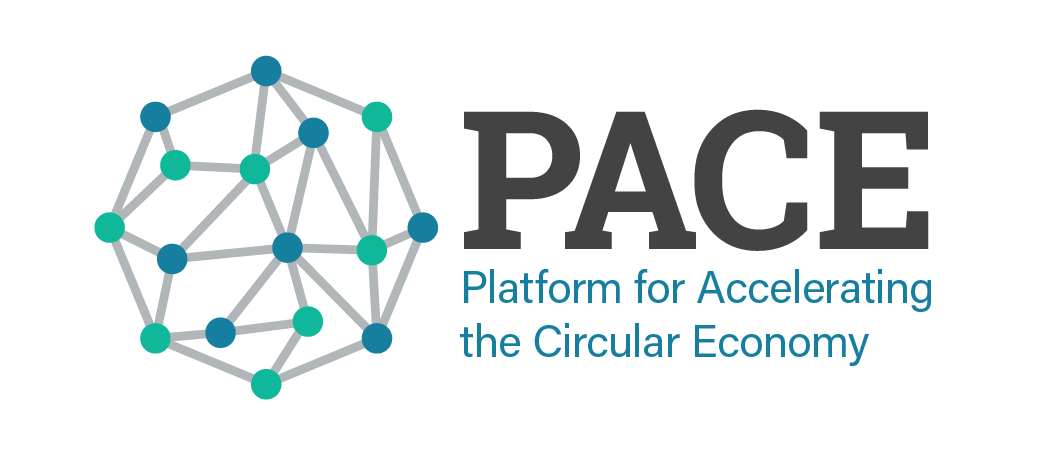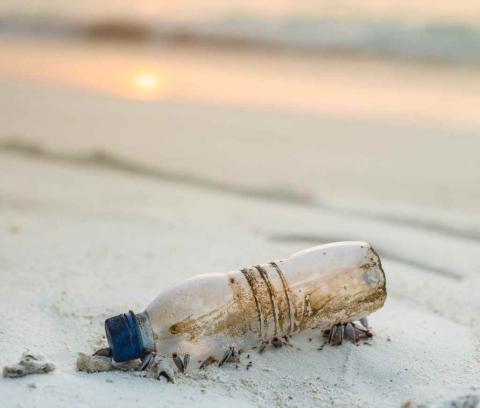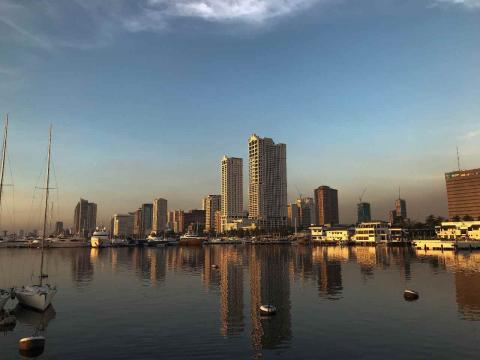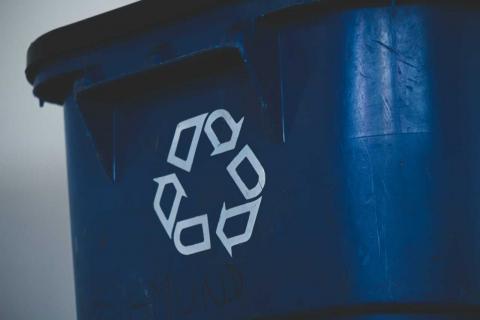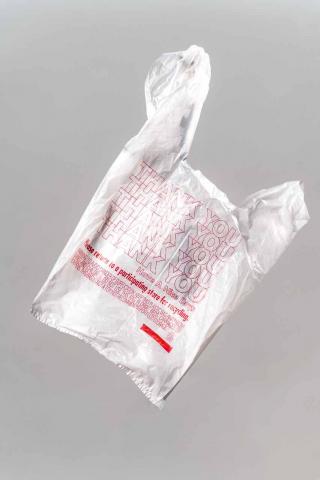Zero Waste programs
This Action aligns to the following Calls to Action from the Circular Economy Action Agenda for Plastics
4. Stimulate consumer adoption of plastic reuse
Ambition
As part of its Education and Awareness working pillar, TriCiclos is implementing Zero Waste Programs with the ambition of educating schools and communities on plastics use and how to minimize plastics waste.
Objectives
TriCiclos launched the first platform of reusable containers for food deliveries, fully integrated with a major international player in 2021. A joint venture partnership with Mercado Circular, parent company of Chilean Start Up "EcoCarga", is underway championing reuse and refill solutions for home cleaning products. Further objective includes achieving retail organic growth and international expansion.
Partners
TriCiclos
Strategic Consulting Services
This action align with the following Calls to Action from the Circular Economy Action Agenda for Plastics
2. Incentivize and support product design for reuse and recycling of plastics
5. Guide and support news business models for environmental, financial, and social triple-win
Ambition
TriCiclos offers Strategic Consulting Services with the aim of encouraging product redesign, recycling solutions. These services focus on (1) Packaging Recyclability, (2) Residual Systems, (3) Product Redesign, (4) EPR Legal Advisory, (5) Design and Implementation of Strategy of Circular Economy, (6) Measurement of Environmental Impact, and (7) Research & Development.
Objectives
In 2021, TriCiclos is working on creating a new brand for strategic consultancy services, along with software driven solutions for packaging assessments, environmental impacts and material value chains. Further objectives include engagement with the start-up ecosystem, bringing support at business decision levels and societal participation by valuating the services provided.
Partners
TriCiclos
Recycling Solutions
This Action aligns with the following Calls to Action from the Circular Economy Action Agenda for Plastics
7. Strategically plan sorting and recycling facilities in compliance with trade regulations
9. Integrate and advance decent work in the transition to a circular economy in plastics
8. Make the recycled plastics market competitive
Ambition
TriCiclos creates solutions to review the waste generation before its design, that is, from the beginning of the material production chain up to the end of the cycle when waste is handled. The ambition of Recycling Solutions is to ensure that waste has a circular destination (reuse and recycling). This involves planning and implementing collection and sorting stations for recyclable materials, and ensuring that these systems work in line with social inclusion by building relationships with Waste Pickers Cooperatives.
Objectives
TriCiclos is setting up the first models of Puntos Limpios operation with formalized waste pickers cooperatives, in order to prepare for the Extended Producer Responsibility (EPR) regulation. Efforts are being made around recovering more material, which due to the pandemic, fell by a 70%. Additionally, in 2021 a mid-scale pilot for the recovery and strengthening of flexible Polypropylene (PP) value chain will be implemented.
Partners
TriCiclos
Greening with Jobs - World Employment and Social Outlook
PACE Partner the International Labour Organization (ILO) is contributing to the following Calls to Action from the Circular Economy Action Agenda:
- Integrate and advance decent work in the transition to a circular economy for electronics (Electronics, CTA 10; Textiles, CTA 9; Plastics, CTA 9)
Ambition
The report ‘Greening with Jobs - World Employment and Social Outlook 2018’ examines environmental sustainability in the world of work to support a strengthening of the global and regional partnerships in the area of skills development for a green transition. It aims to promote cross-border knowledge-sharing with regional and international approaches to skills development for the green transition, which can in turn address the competitiveness concerns of individual countries.
Objectives for 2021
This edition of the World Employment and Social Outlook focuses on how climate change and environmental degradation will impact the labour markets, affecting both the volume and quality of employment, and quantifies the shifts expected to take place within and between sectors. It shows that there is scope for policies in the world of work to advance environmental sustainability, and for environmental policies to ensure decent work. It acknowledges a coherent and integrated legal framework is a step in this direction and provides policy recommendations that combine decent work issues with environmental regulations, and provide workers with the right set of skills to transition to sectors with employment growth, and also to better jobs. Moreover, it underlines the urgent need to improve the understanding of the mechanisms through which a country-specific policy mix can have an impact on skills development for the green transition. In recognition of this need, the ILO is following up on the analysis with a view to developing detailed policy recommendations for each country that could lead to technical assistance to the countries surveyed.
Partners
ILO
Business Call for a UN Treaty on Plastic Pollution
This Action aligns with the following Calls to Action from theCircular Economy Action Agenda for Plastics
1. Agree which plastics can be eliminated and prepare the market to phase them out
Ambition
The Business Call for a UN Treaty on Plastic Pollution is open call from leading businesses across the world encouraging UN member states to agree to start negotiating a binding global agreement on plastic pollution at the UNEA 5.2. By harmonising regulatory standards, mandating the development of national targets and action plans, defining common metrics and methodologies, and supporting innovation and infrastructure development, a UN treaty on plastic pollution would be able to help drive the transition to a circular economy for plastic at speed and scale. WWF, the Boston Consulting Group and the Ellen MacArthur Foundation played a founding role in setting up the Business Call through their publication of the Business Case for a UN Treaty on Plastic Pollution report.
Objectives
The focus is on increasing signatories to the business call by including leading businesses across the plastics value chain in 2021.
Partners
World Wide Fund for Nature, Ellen MacArthur Foundation - for the Business Case Report
Procter & Gamble, The Coca-Cola Company and Unilever - for the Business Call
See the full list of the Business Call signatories here
Plastic Smart Cities
This Action aligns with the following Calls to Action from the Circular Economy Action Agenda for Plastics
2. Incentivize and support product design for reuse and recycling of plastics
Ambition
With a no plastic in nature agenda, Plastic Smart Cities is supporting cities and coastal centers in taking bold action to stop plastic pollution, with the goal to reduce plastics leakage into nature by 30% in the next years and achieve zero leakage by 2030. The program is focusing on six collections: financial instruments, prevention, collection, reuse, recycling and disposal.
Objectives
Plastic Smart Cities completes the baseline waste assessment studies for the 25 pilot cities in South East Asia in in 2021.
Partners
World Wide Fund for Nature
Zero Waste Box Program
This Action aligns with the following Calls to Action from the Circular Economy Action Agenda for Plastics
7. Strategically plan sorting and recycling facilities in compliance with trade regulations
6. Set-up functioning collection systems
Ambition
Through the Zero Waste Box Program, TerraCycle aims to support consumers and companies to recycle hard-to-recycle products by providing an all-inclusive recycling solution. The system consists of boxes and other solutions to collect specific waste that are convenient and easy to use, making it the perfect option for households, schools, businesses, manufacturing facilities, and events looking to offset their impacts and lighten their footprint. The items are then collected by TerraCycle, sorted, cleaned, separated by material and processed.
Objectives
TerraCycle aims to have more than 15 million people using and benefitting from TerraCycle's Zero Waste Box service worldwide by the end of 2021. In 2021, TerraCycle launched the Zero Waste Box service in two additional countries - New Zealand and The Netherlands - making it now available in 8 markets globally.
Partners
TerraCycle
Loop Store
This Action aligns with the following Calls to Action from the Circular Economy Action Agenda for Plastics
6. Set-up functioning collection systems
3. Address hygiene and safety concerns to promote plastics reuse
4. Stimulate consumer adoption of plastic reuse
Ambition
Loop Store aims to create a zero-waste system by replacing single-use plastics. It is enabling consumer goods companies to deliver their products in durable packaging that is collected at end-of-use, cleaned, refilled, and reused.
Objectives
Global in-store launches: In 2021 Loop began its transition from pilot to scale-up by launching Loop’s reuse system in physical stores with the leading grocery retailer in the markets where Loop is live. Loop will have launched in 100+ physical stores across 4 continents by the end of 2021.
First QSR launch: in July 2021, Loop launched a pilot with McDonald’s in the UK. By end of 2021, Loop will expand its Quick service restaurant (QSR) footprint with McDonald's and also plans to launch pilots with Burger King for reusable beverage cup and take-away food packaging.
Partners
TerraCycle
Closed Loop Infrastructure Group
PACE Partners Closed Loop Partners, the Coca-Cola Company, Procter & Gamble and Unilever are contributing to the following Calls to Action from the Circular Economy Action Agenda
-
Support Manufacturers to Increase Sourcing of Secondary Components (Capital Equipment, CTA 8)
-
Strategically Plan Sorting and Recycling Facilities, in Compliance with Trade Regulations (Plastics, CTA 7)
Ambition
The Closed Loop Infrastructure Group (CLIG) aims to build a circular economy supported by strong infrastructure that ensures all valuable materials – from plastics to paper, glass and aluminium – are recovered after use, kept in circulation and never go to waste. CLIG funds replicable, scalable and sustainable recycling and circular economy infrastructure projects across collection, sortation, processing and new technologies in recycling. Each of the funds in the Infrastructure Group invest alongside one another to bridge existing financing gaps, scale solutions and build on synergies across the funds’ networks to scale circular economy infrastructure across North America.
Objectives for 2021
In 2021, the Closed Loop Infrastructure Group will undergo third-party verification of impact processes and performances and continue to support investees in its Closed Loop Beverage Fund and Closed Loop Infrastructure Fund. The Group also launched the Closed Loop Circular Plastics Fund as an industry-led investment fund that provides catalytic financing to build circular economy infrastructure, upgrade recycling facilities and spur technological innovations to source, process and return post-consumer and post-industrial polyethylene (PE) and polypropylene (PP) plastic into manufacturing supply chains in the U.S. & Canada for use as feedstock for future products and packaging.
Partners
Closed Loop Partners, the Coca-Cola Company, Procter & Gamble and Unilever (PACE Partners)
3M, Colgate Palmolive, Johnson & Johnson Consumer Health, Keurig Dr. Pepper, PepsiCo, The Walmart Foundation, Amazon, Danone North America, Danone Waters of America, Nestlé Waters North America, Starbucks, DOW, Lyondellbasell and Nova Chemicals
The Consortium to Reinvent the Retail Bag
This Action aligns with the following Calls to Action from the Circular Economy Action Agenda for Plastics
2. Incentivize and support product design for reuse and recycling of plastics
10. Investigate environmental and socio-economic impacts of renewable material inputs for plastics
Ambition
The Consortium to Reinvent the Retail Bag has committed more than $15 million to launch the Beyond the Bag Initiative that aims to reinvent the single-use plastic retail bag by identifying, testing and implementing viable design solutions and models that more sustainably serve the purpose of the current retail bag. The consortium members support the research in exploring reusable systems, altogether bagless solutions and innovative materials for a less wasteful future.
Objectives
The Consortium has analysed a pool of over 450 sustainable bag submissions from more than 60 countries and selected nine winners to the Beyond the Bag Challenge based on their ability to maintain the convenience of the single-use plastic bag, delight the customer, complement existing retail environments, reach a broad range of consumers and create long-term value in 2021. In August, the Consortium launched a series of tests and first-of-a-kind multi-retailer pilots to advance sustainable alternatives to the single-use plastic bag and accelerate their potential to scale.
Partners
Closed Loop Partners, Ocean Conservancy, CVS Health, Target, Walmart, DICK’S Sporting Goods, Dollar General, Kroger, The TJX Companies, Inc., Ulta Beauty, Ahold Delhaize USA Brands, Albertsons Companies, Hy-Vee, Meijer, Wakefern Food Corp., Walgreens, Conservation International and Ideo
Pagination
- Page 1
- Next page
